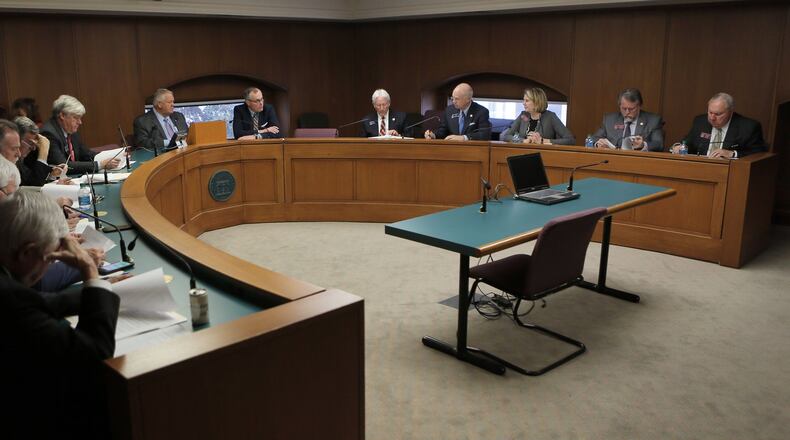Georgia legislators must receive mandatory sexual harassment training every two years, according to a policy approved by leaders of the state House and Senate on Thursday.
The Georgia General Assembly's new sexual harassment policy also was expanded to include lawmakers' dealings with lobbyists and part-time employees.
The expanded sexual harassment requirements come as a result of a review ordered by House Speaker David Ralston and Lt. Gov. Casey Cagle in response to nationwide allegations of inappropriate conduct by politicians and media figures.
Both Ralston and Cagle have said they’re not aware of any recent allegations made against lawmakers or lobbyists, although the General Assembly has exempted itself from the Open Records Act, so they likely would not be made public if there were any.
The five-page harassment policy, adopted on a 13-0 vote Thursday by the Legislative Services Committee, significantly expands on existing rules in the Legislature’s employee handbook, clarifying definitions of harassment, including examples of inappropriate conduct, and providing additional ways to report complaints.
Allegations of harassment will remain confidential. Members of the public will have no way to find out if legislators are sanctioned or settlements are paid by the state unless the House or Senate ethics committees vote for disclosure.
House Speaker Pro Tem Jan Jones said elected officials, staff and lobbyists need to know what behavior is unacceptable.
“This is a workplace, and we should hold ourselves to as high a standard as any corporation or any other agency or department,” said Jones, R-Milton, the only woman on the committee.
The policy should help prevent potential harassment problems before they start at the General Assembly, Ralston said.
“We have a zero-tolerance policy for this kind of conduct,” said Ralston, R-Blue Ridge. “The outcome is that we don’t have any of the problems that other states have had.”
Sexual harassment includes derogatory statements, sexually related comments, unwelcome advances, patting, pinching, intentionally brushing against someone’s body, making unwelcome visits to someone’s home or hotel room, or making sexually suggestive posts online, according to the policy.
Retaliation for making complaints about harassment is forbidden. Complaints can be filed with the Legislative Fiscal Officer, the clerk of the House, the secretary of the Senate, the chairman of the Senate Administrative Affairs Committee or the chairman of the House Ethics Committee.
The Georgia Constitution allows the House and Senate to issue censures and fines, or to expel a legislator by a two-thirds vote.
When legislators undergo training every other year, they’ll be educated on the sexual harassment policy.
Lawmakers and employees will be required to acknowledge that they went through the training. Records of who went through the training will be made available to the public.
Rep. Dar'shun Kendrick, who introduced a bill this year to require sexual harassment training, said the policy meets the need for widely applicable and consistent rules.
“The biggest thing that I wanted was the training,” said Kendrick, D-Lithonia. “And it expands coverage to include everyone, not just those who have an employer and employee relationship.”
The updated policy is final and doesn’t require a vote of the full House and Senate.
Jones said she plans to introduce a bill allowing lobbyists to be sanctioned for harassment and requiring them to acknowledge they’ve read the policy.
About the Author
Keep Reading
The Latest
Featured




